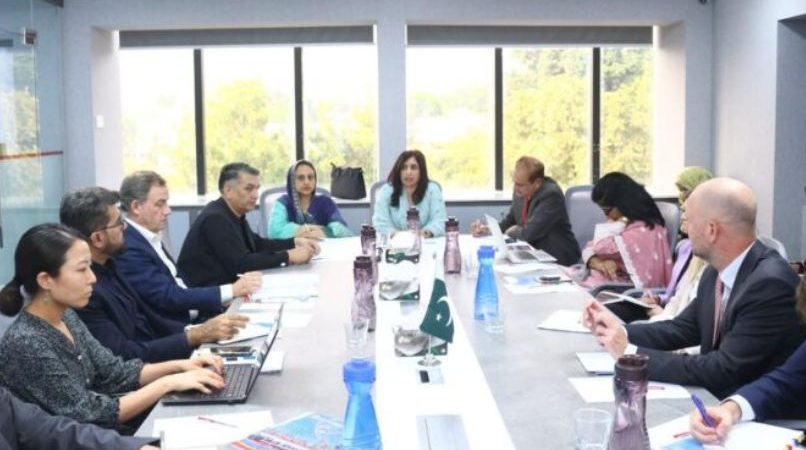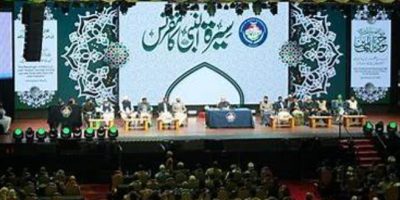Pakistan strengthens regional connectivity, trade ties with SCO states

ISLAMABAD, OCT 22 (DNA) — The 23rd Shanghai Cooperation Organization (SCO) Council of Heads of Government Meeting, held in Islamabad, provided Pakistan with a unique opportunity to enhance regional connectivity, expand trade and economic ties, strengthen security and strategic cooperation among member countries.
These insights were shared by speakers at a roundtable discussion titled “Post-SCO Council of Heads of Government Meeting 2024: Unpacking the Results and Opportunities,” organized by the Centre for SCO Studies at the Institute of Peace and Diplomatic Studies, Pakistan-SCO Friendship Forum, and Riphah Institute of Public Policy at Riphah International University. The event focused on the outcomes of the meeting, which took place on October 15-16, 2024.
In her opening remarks, President of the Institute of Peace and Diplomatic Studies, Dr. Farhat Asif emphasized the importance of assessing the strategic and economic impacts of the summit. She highlighted that the event had reinforced the need for multilateral cooperation in sectors such as security, trade, and sustainable development.
Spokesperson for the Ministry of Foreign Affairs, Mumtaz Zahra Baloch delivered the keynote address, detailing key outcomes of the meeting. She announced that Pakistan would chair the Regional Anti-Terrorism Structures (RATS) body within the SCO in 2025 and host the SCO Council of Heads of State in 2026. She noted that the successful hosting of the summit had significantly bolstered Pakistan’s global image.
Director of the China-Pakistan Study Centre at the Institute of Strategic Studies Islamabad, Dr. Talat Shabbir stressed the economic and strategic benefits Pakistan stands to gain from its active participation in the SCO. He noted that enhanced security cooperation and economic collaboration within the organization would contribute to Pakistan’s stability and growth.
Addressing regional trade, Head of the Department of International Relations at the National University of Modern Languages, Dr. Sarwat Rauf underscored Pakistan’s critical role in facilitating greater connectivity between Central and South Asia. She pointed to the country’s efforts to address regional security challenges, including terrorism and extremism.
Dean of Social Sciences at MY University, Dr. Muhammad Munir provided a detailed analysis of the summit’s key takeaways, highlighting Pakistan’s diplomatic leadership in fostering regional cooperation. He also discussed ongoing regional projects such as the Belt and Road Initiative (BRI) and the China-Pakistan Economic Corridor (CPEC), which are pivotal in advancing regional peace and development.
The session concluded with remarks from Director of the Riphah Institute of Public Policy, Dr. Rashid Aftab who emphasized the alignment between the summit’s focus on sustainable development, climate action, and renewable energy and Pakistan’s national priorities. He called for stronger academic and policy-oriented collaboration among SCO member states to address common challenges and maximize mutual benefits. —DNA
Related News

IBU holds International Conference on Seerat-un-Nabi (P.B.U.H)
BAHAWALPUR, Feb 4: The 11th International Conference on Seerat-un-Nabi (Peace Be Upon Him), organized byRead More

Hajj 2026 preparations progressing on time, pilgrim services improved: Religious Minister
ISLAMABAD, Feb 4 /DNA/ – Federal Minister for Religious Affairs, Sardar Muhammad Yousaf, on WednesdayRead More


Comments are Closed